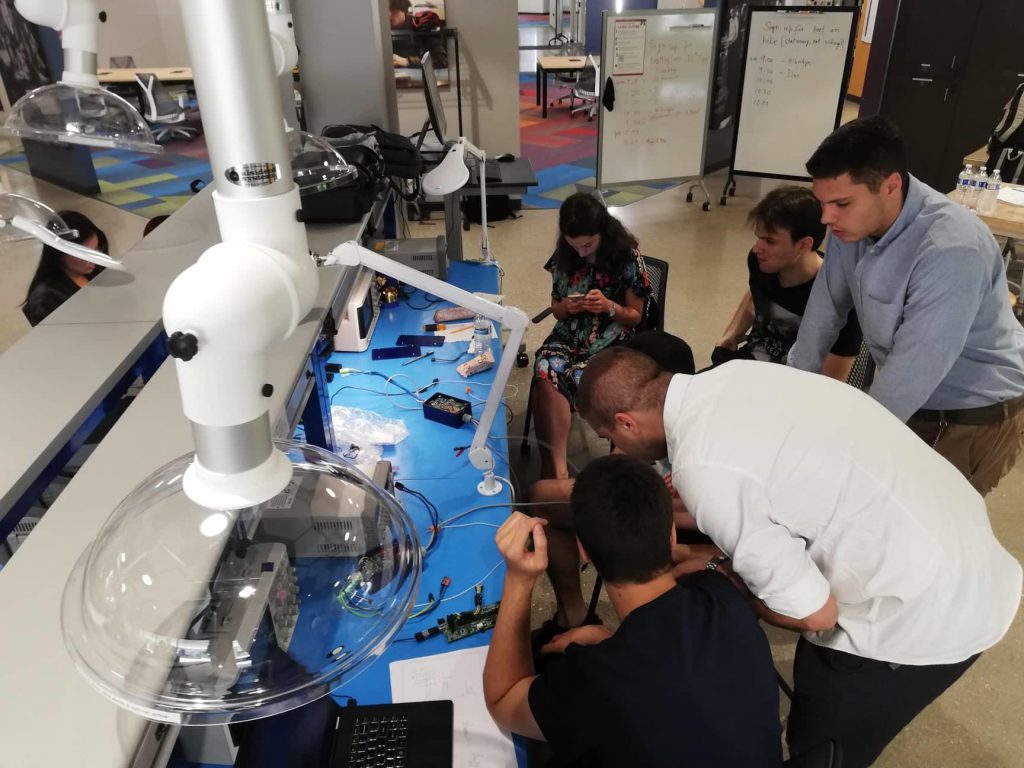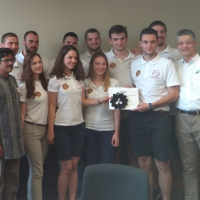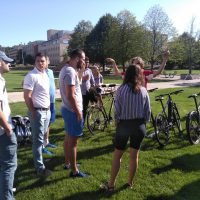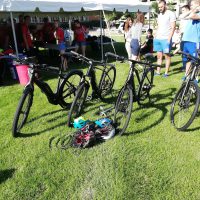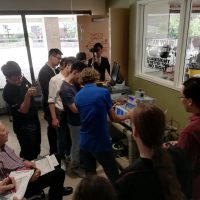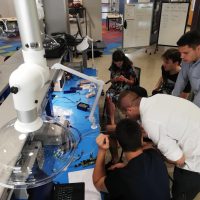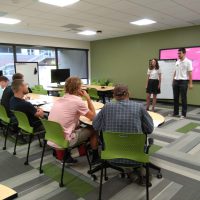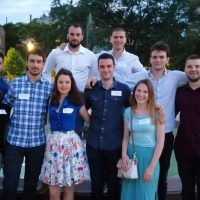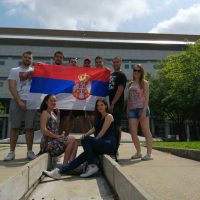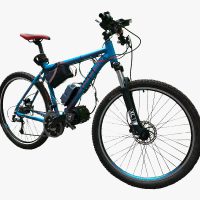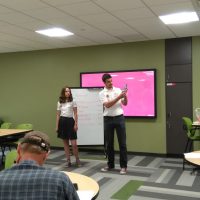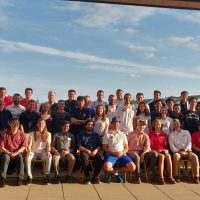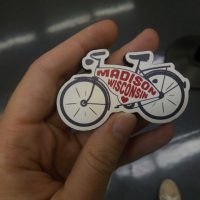1. How did it all start? What was the initial spark that made you say: “Let’s try to make the best solution”?

Hot Tyres
We heard that professor Jovičić is assembling a team for this competition so me a few of my colleagues from Electronics department applied. It looked like a fun and challenging project where we could learn a lot, especially since we didn’t have much contact with microcontrollers up to that point.
2. Tell us a little bit more about your project?
We heard that professor Jovičić is assembling a team for this competition so me a few of my colleagues from Electronics department applied. It looked like a fun and challenging project where we could learn a lot, especially since we didn’t have much contact with microcontrollers up to that point.
3. Was it hard to form the team? How many members do you have? How have you organized the workflow between you? Simply put, introduce us to your world
There are six positions in each team (plus one for mentor-professor) and, as there were exactly six of us that applied – there were no problems. Our team assembled in October, so it looked like there was enough time. However, our studies got more intense by the end of the year so we got to a late start with the actual work. In January we managed to “step on the gas” and catch up, completing our project on time.
4. Teamwork brings increased productivity, but also some tough moments. Can you single out a few moments you would never forget?
Worst part had to be when we arrived to Nurnberg – we managed to enter the wrong hotel. There were plenty of great moments like, for example, good times we spent in the pub where we were joined by the locals.
On the day the competition was about to start we found out we are not allowed to use a tool we had in mind.
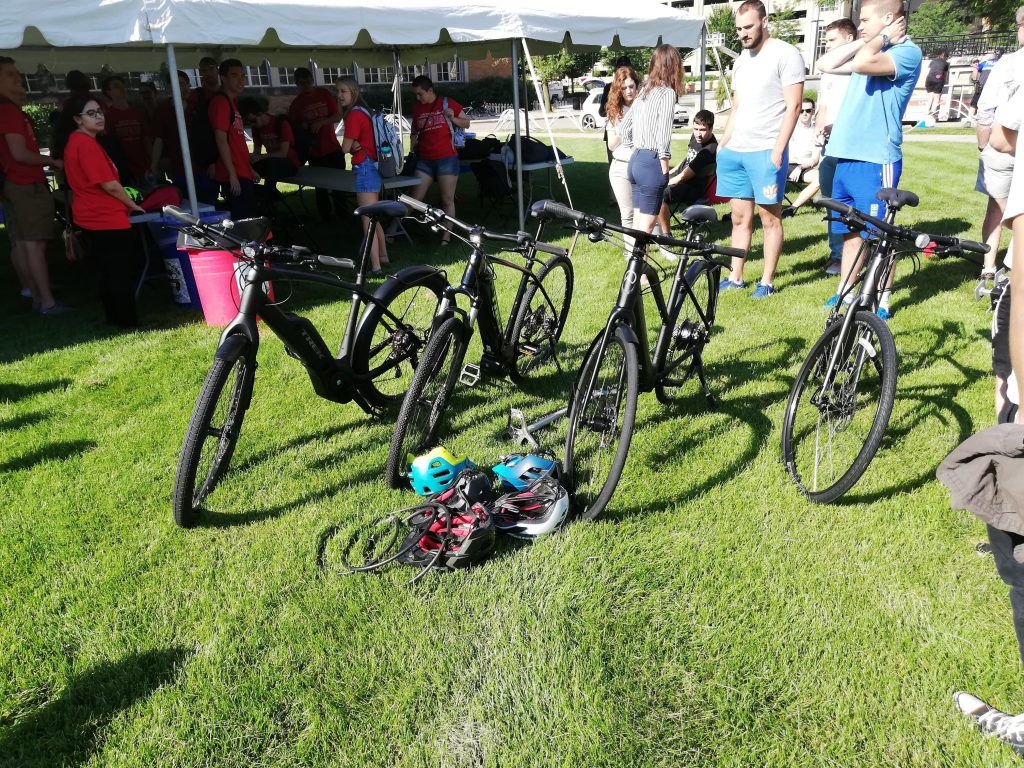
5. Have you encountered some hurdles on the way to (semi-finals/ finals)? And how did you overcome them?
On the day the competition was about to start we found out we are not allowed to use a tool we had in mind. It was a wheel that would help us determine where our racing car should decelerate and accelerate. This completely disrupted our concept, and we had to change the code right there and then. In the end, we didn’t fully overcome this problem.
6. Tournament – work presentations – experienced team of judges – all eyes on you and your solution. What does it feel like? What goes through your mind?
There was some stage fright, but overall we were pretty excited. All our past work should fit in those few hours, so there was some mental pressure involved. We had our hopes high that the racing car will perform in the same way as it did on the test track, but you never really know. On this competition, the first time you come in contact with the track is when you actually compete.
In this project, like so many others, things don’t go smoothly from the start. It’s important to stay focused and have a problem-solving attitude.
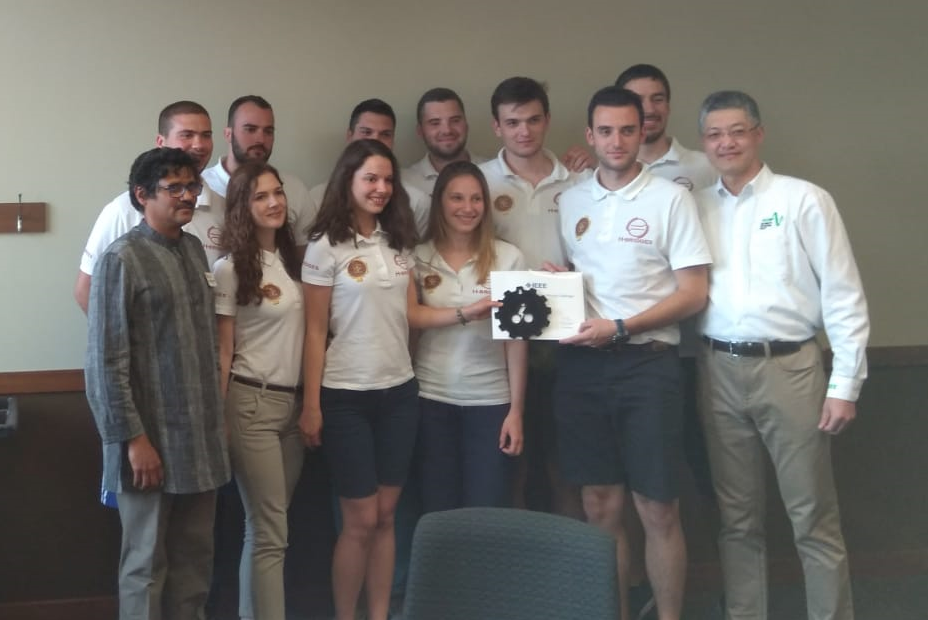
7. What are some of the final preparations you made for the competition?
It was the same checklist we rehearsed on the test-drive in Belgrade. Aside from the basics, like checking the batteries, making sure the sensors and all the connections work, there was little else we could do to increase the performance. Team-wise, we determined the roles of each team member and their duties on the track.
8. What’s the next step for you, and this competition?
As a team, we haven’t yet determined if we want to compete next year. If we decide to do it, we will continue our work and apply everything that we’ve learned so far. Even if we don’t take part, we will pass all the tips and tricks to the next generation.
9. What piece of advice would you give to your younger fellow colleagues?
Hard work and persistence pays off. In this project, like so many others, things don’t go smoothly from the start. It’s important to stay focused and have a problem-solving attitude.
10. Where can we follow your journey & cheer for you? Is there something more you wish to add?
If we decide to participate the next time, we would be more than happy to have your support once more. We are grateful for your support, especially for lending us your workshop so we could perform proper testing.


